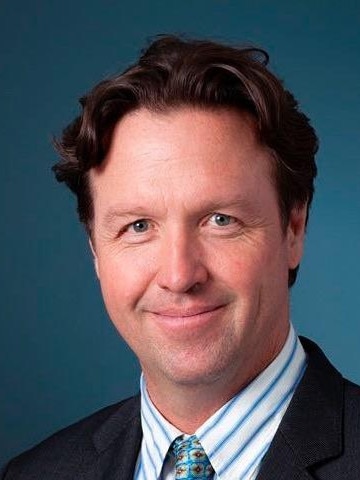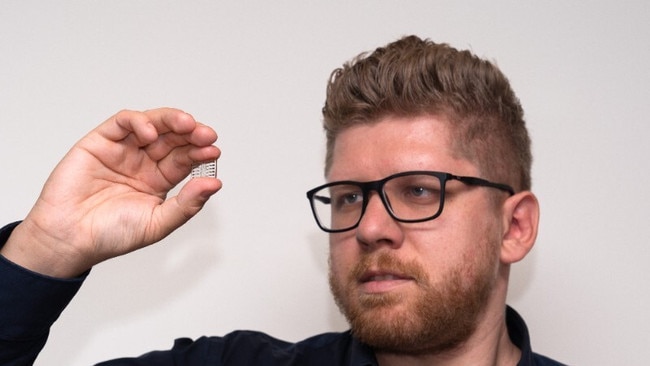Federal Court told Fortescue PIs followed rivals to shops, rummaged through mail
Andrew Forrest has ‘reminded’ Fortescue lawyers about values after a court heard how much private investigators followed former staff, now working at green steel rival Element Zero.

Fortescue detectives spied on family shopping trips to Kmart, rummaged through mail and watched the wives and children of former executives for 19 days, the Federal Court has heard.
Further details about the iron ore giant’s efforts to monitor its green steel rivals, Element Zero, and their executives Bart Kolodziejczyk and Bjorn Winther-Jensen before launching raids on their homes and offices over allegations they stole intellectual property were revealed on Wednesday.
Federal Court Judge Brigitte Markovic also told Fortescue’s lawyers they should revise the “ambit” of their broad suppression order requests, which included a bid to keep the entire 600 pages of a report produced by private investigators secret.
In a statement on Wednesday, Fortescue’s executive chairman Andrew Forrest effectively conceded that the company’s lawyers had overstepped the mark in their pursuit of the three men saying the engagement of Davies Collison Cave Law was under review.

“I was surprised to learn of the investigations and have been advised by Fortescue’s legal team that they were necessary in order to be granted search orders from the Federal Court,” Dr Forrest said.
“Fortescue’s external legal team have been reminded that they also have an obligation to comply with the company’s values and their engagement is now under review,” he said.
“Fortescue is a first mover which invests significant time and resources into its intellectual property.”
A report was provided to independent lawyers who carried out the raids — which is required under Federal Court rules authorising privately obtained search warrants — and showed pictures had been taken Dr Winther-Jensen’s wife and 16-year-old daughter who, the report noted, had been watched as she left for school and returned home on one day.
As well, there were photographs of Dr Kolodziejczyk’s wife and five-year-old son were included in the report. Private investigators identified Element Zero’s principal and likely secondary place of businesses at two locations close by in Malaga, Western Australia.
Dr Kolodziejczyk and Dr Winther-Jensen — former Fortescue executives — and their company Element Zero along with long-term Andrew Forrest lieutenant Michael Masterman are parties to the court fight.
All three quit the would-be green energy giant to start their own green metal company in 2022.
After Fortescue accused them of stealing intellectual property relating to its carbon dioxide free iron technology, it successfully obtained orders from the Federal Court in May to search the offices and homes of Element Zero and its staff. Computers and electronic devices were seized during those raids.
Element Zero deny the allegations and say their technology was developed independently to that of Fortescue’s.
Such has been the veil of secrecy cast over the case, its existence was not revealed until two weeks after the search orders were granted (on May 14) and elements of the matter are still suppressed.

During a brief case management hearing on Wednesday, barrister appearing for Element Zero, Dr Kolodziejczyk and Mr Masterman — Chris McMeniman — told the court for 19 days Fortescue’s private investigators pursued his clients, their families and Element Zero staff.
He said Fortescue claimed it is “too difficult” to redact residential addresses and photos of minors included in a 600 page report completed for them, and therefore want the whole thing kept secret.
That report contains details about the extraordinary surveillance conducted by Fortescue, including that private investigators followed “wives to Kmart”, sifted through mail “and the like” and that Element Zero staff, beyond those listed in the court filings, were followed.
“They want the entirety of that redacted,” he said.
Fortescue barrister Wen Wu told the court since an interim suppression order was granted on May 9, the company has since lodged a further two applications.
“The reason … why a further suppression application was brought is because the initial suppression was to suppress material that was confidential to Fortescue and not known to the individual respondents,” Mr Wu said.
“The second suppression application made ... covers confidential information which is known to individual persons but not to the world-at-large,” he said.
Mr Wu agreed Fortescue’s bid for a suppression order covering the 600 pages of private investigator reports is “broader” than Element Zero’s.
Justice Markovic described Element Zero’s application as “more nuanced or selective”.
She said she will need to “sift through” the vast amounts of material filed and examine what is sought to be redacted.
In relation to one of Mr Wu’s suppression applications, Justice Markovic said: “I would like your side to consider ... narrow applications”.
Hall and Wilcox were hired by Fortescue’s external lawyers Davies Collison Cave Law to act as independent solicitors and carry out the raids in May.
According to a letter sent from Davies Collison Cave Law to Hall and Wilcox which summarised Fortescue’s allegations against Element Zero, Dr Winther-Jensen sent emails to his personal email address attaching confidential Fortescue technical documents.
As well, Fortescue claimed Dr Kolodziejczyk access confidential technical documents on his work-issued laptop using a USB and deleted a file shortly before he left.
“Fortescue are unable to locate a substantial number of documents recording the research and development of the ER (electrochemical reduction) process in the green iron project on its internal file systems,” the letter read.
“Element Zero has achieved technology development milestone that are highly improbable based on the resources available to them.”
Lawyers for Element Zero have previously flagged they would move to have Fortescue’s case struck out, saying the accusations had caused “ongoing reputational damage” to all three men, and the orders were improperly obtained by Fortescue.
In late June at an earlier hearing, Dr Kolodziejczyk suggested he planned to introduce evidence he was allowed by Fortescue to take some documents with him when he resigned.
The matter will return to court in August.






To join the conversation, please log in. Don't have an account? Register
Join the conversation, you are commenting as Logout